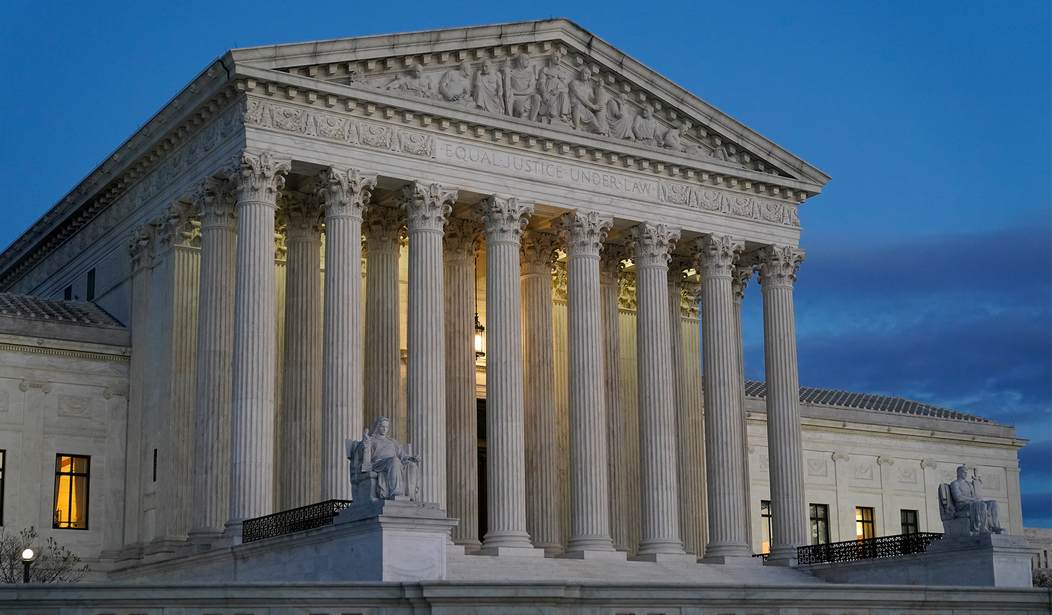Oh, dear me! The left got a serious case of vapors after Louisiana mandated the posting of the Ten Commandments in public schools.
Outrageous! To expose children to rules for living like don't kill anyone, don't steal, obey your parents, and don't lie is beyond torture. It's cruel. It's against man's natural instincts. Where's the permission to do fun stuff? "Thou shalt have sex early and often" has got to be in there somewhere.
Poor Madeline Murray O'Hair is turning over in her grave. The most famous atheist in U.S. history died before the left really got going in not just separating church and state but trying their best to eliminate one of those things. And it ain't the state.
O'Hair was murdered in 1995, along with her son and granddaughter, by her office manager, another atheist who never read the Ten Commandments. Before she departed the earth, the movement to eliminate religion anywhere it showed its face was well underway.
Louisiana's law that mandates posting the Commandments was instantly declared "unconstitutional" by thoughtful, as well as brain-dead lefties. "Allowing this law to stand would mean taking a sledgehammer to the wall separating church and state," writes Vox's Ian Millhiser.
Millhiser asks if the Supreme Court is "going to get away" with allowing the Commandments in a classroom. Muslims "get away" with creating classroom bulletin boards about Ramadan. But the Ten Commandments are incendiary.
Slate’s Mark Stern and Dahlia Lithwick claim that the Louisiana law “couldn’t be any more unconstitutional.” That remains to be seen. But other leftist sites were close to hysteria. MSNBC ran an opinion piece entitled, “Louisiana’s new mandate is the first step in a sinister vision for the country.”
"Sinister?" Sheesh.
Putting aside all the hysteria and hyperbole, the most important question that will confront the Supreme Court is whether or not Louisiana's law violates the Establishment Clause of the Constitution.
The "Establishment Clause prohibits the government from making any law “respecting an establishment of religion.” This clause not only forbids the government from establishing an official religion, but also prohibits government actions that unduly favor one religion over another. It also prohibits the government from unduly preferring religion over non-religion or non-religion over religion," according to Cornell's Legal Information Institute.
The Louisiana law might violate the Establishment Clause in several different ways. Does the law favor one religion over another? Their version of the Ten Commandments mandated by the law is the protestant version, which is different from the Catholic version and the Jewish version.
Posting the Commandments might also be seen in the eyes of the law as being the government preferring religion over non-religion.
But — and this is critical — case law has been changing since the original ruling forbidding the posting of the Commandments. Stone v. Graham in 1980 applied what is now a discredited standard — the Lemon test — which "called for an examination of a law’s purposes, effects, and potential for entanglement with religion — in effect, creating an unhistorical new barrier between church and state," writes Andrea Picciotti-Bayer, the director of the Conscience Project writing in National Review.
The majority in Stone believed that the purpose in posting the Ten Commandments was religious in nature and therefore violated the Lemon test. But what the justices ignored in Stone and what the present-day justices might take into account is the historical nature of the Ten Commandments. Their role in writing laws in the entire Western world cannot be ignored and obviously has little to do with religion.
“The Establishment Clause does not require that the public sector be insulated from all things which may have a religious significance or origin,” the future Chief Justice William Rehnquist wrote.
The justice also alluded to the fact that the Commandments "have had a significant impact on the development of secular legal codes of the Western World.” Rehnquist added, “The fact that the asserted secular purpose may overlap with what some may see as a religious objective does not render it unconstitutional.”
Twnety-five years later, Rehnquist ruled on a case where the Ten Commandments were on display on the grounds of the Texas state capitol. Rehnquist wrote for the majority, “simply having religious content or promoting a message consistent with a religious doctrine does not run afoul of the Establishment Clause.”
Related: The $100 Million Effort to Impose Abortion Access Across America
So it's not going to be a question of whether or not Louisiana is trying to establish a Christian religion. The argument is whether the secular, historical nature of the biblical writings can be seen as something besides establishing a religion.
The left's heads are going to be exploding when this issue gets to the Supreme Court.










